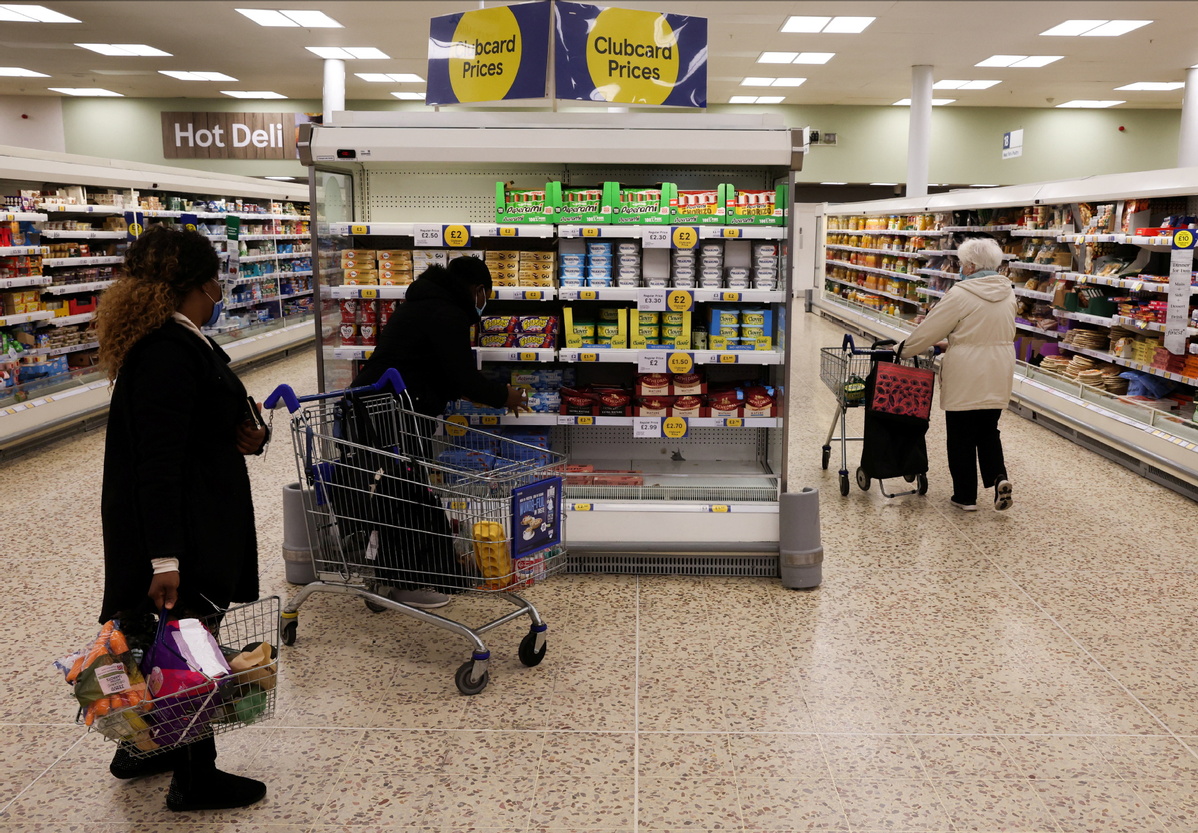Inflation in UK grows, leads to increase in cost of living in March


Households in the United Kingdom are continuing to feel the effects of inflation, with some 83 percent of adults experiencing an increase in the cost of living in March compared with around 62 percent in November, according to the Office of National Statistics.
Earlier this month, the Bank of England increased interest rates for the third time in four months, from 0.5 percent to 0.75 percent, in an effort to curb the rise in the cost of living.
But the bank warned inflation may reach 8 percent or even higher in the coming months.
With increases in the prices of food, gas, electricity and fuel, some analysts say the Bank of England could have acted sooner.
Wyn Grant, a professor in the department of politics and international studies at the University of Warwick, said: "Many would argue that it could have been anticipated earlier and the Bank of England has been criticized for being too complacent, dismissing it as a post-pandemic blip. Arguably they should have taken action to increase interest rates before they did and more quickly and steeply."
The Office of National Statistics said as many as 29 percent of adults reported that their household could not afford an unexpected, but necessary, expense of 850 pounds ($1,116).
Grant said people should be aware of the fiscal drag. "As wages rise, far more people will be paying tax at the 40 percent rate and others will be dragged into the 20 percent band," he said.
Shop price inflation rose at the fastest rate since September 2011. Annual inflation rose to 2.1 percent in March, up from 1.8 percent in February, according to the British Retail Consortium. It noted that food inflation increased to 3.3 percent in March, up from 2.7 percent in February.
Consumers were hit with rising prices for a fifth consecutive month, with mounting cost pressure throughout the supply chain.
Samir Dani, deputy director and professor of operations management of Keele Business School, said, "Until energy prices go down in the UK with some short-term supply diversification, the product prices and inflation will remain at increased levels. In the long term, the UK will need to shift energy sources to renewables."
He added that "supply challenges within the food sector in the UK are currently increased" due to the conflict in Ukraine causing fertilizer shortages.
The shortages of palladium and neon gas, resulting from the conflict in Ukraine, will impact semiconductor manufacturing, which will affect products including electronics, automobiles and toys, Dani said.
The Ukraine conflict has also pushed up inflationary pressure in the energy markets and on supply chains.
"The economic and supply chain sanctions on Russia have increased supply chain risks around the world, specifically in the electronics, automotive and food sectors," he said. "It will take time for things to improve in terms of the energy crisis as better long-term solutions will be required across Europe and the UK to shift away from reliance on Russian gas and fuel."
As energy costs rise significantly and there is no sign of relief for UK households, it's unclear when the cost-of-living crisis will ease.
"There are clearly considerable uncertainties in relation to energy costs in particular. The government would hope that things will improve in time for a general election in 2024 and that is certainly possible," Grant said.
On whether there will be a change in the UK's future economic thinking, Grant said: "A fundamental problem is that the UK has a poor productivity record and it is getting worse. The Chancellor (Rishi Sunak) seems to adhere to rather traditional versions of fiscal orthodoxy. Prime Minister Boris Johnson would like to spend more money. However, I do not see any new economic paradigms emerging or being advocated."
































